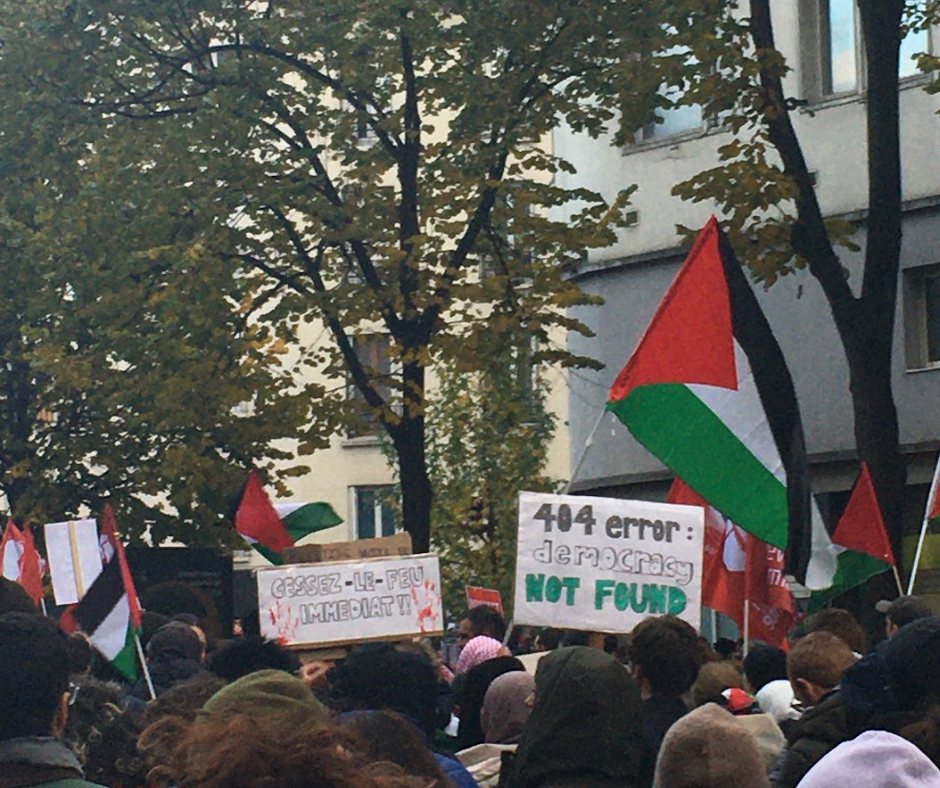by Astrid Lucia Offersen
In the face of increasing racial tensions, the far-right’s success in the European Elections, and President Emmanuel Macron’s call for a snap election, it is more important than ever to re-commit ourselves to the power of hope, despite the risk of disappointment.
Paris has an air of romanticism, often deeply engrained in the imaginations of visitors. Emboldened by these ideas, I resettled in Paris. Lured by Haussemanian buildings and bright summer nights, it felt warmer here than it had ever been in Scotland.
A month later, in the Parisian suburb of Nanterre, 17-year-old Nahel Merzouk was shot and killed by a police officer. A ‘routine’ traffic stop snuffing out the life of a 17-year-old French-Algerian-Moroccan boy. Subsequently, a far-right politician raised 1.6 million Euros for the officer who killed Nahel, while a fundraiser for Nahel’s mother collected around 400.000 Euros. With Nahel’s murder, racialised violence was reaffirmed as being geographically unconfined. You could simply tweak the year, age or ethnicity of the victim, and the various iterations of police violence could be anywhere.
With Nahel’s murder, racialised violence was reaffirmed as being geographically unconfined. You could simply tweak the year, age or ethnicity of the victim, and the various iterations of police violence could be anywhere.
The feelings – anger, disillusion, and disappointment – find their way home every time. A microcosm of state-sanctioned brutality, Nahel’s murder was soon followed by news of escalating violence against Palestinians at the hands of a belligerent occupier supported by the West.
The prefecture approved the first pro-Palestinian protest I attended in Paris. It was a moving day in mid-October, filled with solidarity, grief, and anger. We needed to act, bearing witness and protesting against the ongoing ethnic cleansing campaign and voicing the injustice in the world.

At another protest a week later, we found ourselves corralled and trapped by the police: the protest had been banned at the last minute, and subsequently, the police issued 1,359 fines for refusal to disperse at 159 euros per piece. We walked home full of indignation – falling deeper into disappointment.
A march against antisemitism was also held in the following weeks, attended by more than 100,000 people, including the leading far-right party, Rassemblement National (RN). The RN’s attendance seemed like an attempt to ‘wokewash’ the party, using the guise of anti-antisemitism to further their nativist and xenophobic agenda. One leading leftist party leader criticised and boycotted the event because of the RN’s presence. Needless to say, boycotting a march against antisemitism – for whatever reasons – was not a good look.
By maintaining a routine of attending protests every weekend amidst an ongoing ethnic cleansing campaign, springtime arrived before we knew it. This time, while a pro-Palestinian protest was held in one part of the city, a neo-fascist march took place in another. The march – authorised and with minimal police presence – featured participants chanting through the streets carrying black flags with white power crosses on them.
Finding yourself in a place where people could openly call for racial supremacy without consequence is terrifying.
Finding yourself in a place where people could openly call for racial supremacy without consequence is terrifying. While that march was comparatively small, the results of the European Elections soon came in. With 31.5% of votes going to the RN in France, it was impossible not to see a connection between the success of the RN and the people who had felt emboldened enough to march for racial supremacy in the centre of Paris. While the overall turnout across Europe rose to an unimpressive 51,08%, the French results were deemed such an indictment of failure that President Macron called a snap election – the implications of which remain to be seen.
Confronted with the reality that parties like RN appeal to so many, it was impossible not to think: have we set ourselves up for disappointment in hoping for a better world?
Hope, disappointment, disillusion, and disengagement often come in a cycle. Yet, in the refusal to rely on scapegoats as the source of our misery, we must re-commit to hoping. To struggle against the present reality, we need to not give in to disappointment, disillusion, and detachment, no matter how tempting. Hope may be a fool’s errand, but it remains essential despite the risk of disappointment.
To struggle against the present reality, we need to not give in to disappointment, disillusion, and detachment, no matter how tempting.
This is why we have kept protesting every weekend for nine months. In these protests, there is community and comfort in standing with people who refuse to look away from fellow humans subjugated to extreme violence. If nothing else, at least we have each other in the streets every weekend, and that means something.
In the weeks since the EU elections, the French left has more or less united under the banner of a ‘New Popular Front’. There is an agreement to keep the RN and other far-right forces from power and to leave the in-fighting at the door for now. There is hope in that -and the possibility of further disappointment. Voting – and perhaps democracy overall – is an idealistic endeavour similar to hoping. There is a risk of disappointment, but there is also a possibility for change, and we can insert ourselves in a refusal to let it be for the worse. We have much more to lose beyond our hope.
The far-right is hoping for a reality without us in it, and there are plenty of people hoping alongside them.
Astrid Lucia Offersen is an aspiring writer, currently working on improving policies for gender equality within development co-operation. A Danish-Tanzanian presently based in Paris, she’s previously called both Glasgow and Aberdeen her home, where she studied and worked towards raising awareness of discrimination against racialised people.



